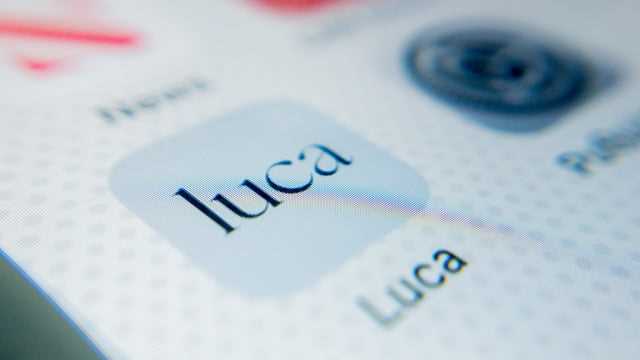One breakdown followed the next with the Luca app. In spring 2021, the “Chaos Computer Club” already confirmed that the operators of the app had a “fundamental lack of competence and diligence”. The Mainz data scandal is the sad climax of the Luca drama. It’s a good thing that the Corona warning app exists. A comment by Anna Schmid
A drama in several acts: This is how not only a classic play can be described, but also the (failure) success story of the Luca app. Originally intended for contact tracing, the application has since fallen into disrepute.
This is also due to the latest report: the Mainz police used data from the Luca app to find witnesses for a case. Law enforcement agencies aren’t really allowed to do that. Although the app operator is not to blame here, the incident impressively shows how vulnerable the Luca architecture is to data misuse.
And it is also a wake-up call: After a remarkable series of breakdowns, it should be clear that the Corona warning app is now the much better – and safer – tool for fighting the pandemic.
The Corona warning app works anonymously, the Luca app does not
First things first: In contrast to the Luca app, the Corona warning app works completely anonymously. The tool developed by SAP and Telekom on behalf of the federal government does not store any personal data. It is not possible to draw conclusions about the name, telephone number or location of the user.
Instead, the application uses Bluetooth technology to measure distance and encounter duration between people who have the app installed. If a user had contact with an infected person, the Corona-Warn-App shows him this. He then has to become active himself.
The Luca app, on the other hand, has a kind of contact data management, in addition to personal data, whereabouts are also collected. In the event of an infection, health authorities linked to Luca can access the data stored in the app and inform contact persons.
Corona-Warn-App is extended: No adjustment to Omikron planned
Chaos Computer Club spoke of “blatant defects” in 2021
It is precisely this concept, or rather its implementation, that has repeatedly caused resentment in the past. As early as April last year, shortly after the application was launched, experts from the “Chaos Computer Club” called for the immediate end of the Luca app.
“In the past few weeks, blatant deficiencies in the specification, implementation and correct licensing of the Luca app have been uncovered,” they complained, attesting to a “lack of competence and diligence” on the part of the operators. Only a short time later, IT security experts published an open letter in which they advised against using the app.
Finally, after a researcher demonstrated in a YouTube video how easily attackers can use the Luca app to access data from health authorities, culture4life GmbH (which is responsible for the tool) responded by adapting the app.
Health authorities in Bavaria hardly use the Luca app anymore
But did the criticism of that die down? No. The next setback followed in August 2021, when the Berlin health authorities complained that Luca Support was unavailable.
In a report available to the “Tagesspiegel”, Neukölln’s head of the health department, Nicolai Savaskan, and the IT expert Mesut Yavuz railed: “For us and our colleagues, at least, those responsible were hardly reachable for weeks.” The Luca app should be of help to the health authorities in particular.
Today its usefulness is more than doubtful. Research by the “netzpolitik.org” portal has shown that the authorities in Bavaria have not used the application once in the past two weeks to track corona contacts. And an employee of the city of Rostock said “Zeit Online”: The Luca app produces “garbage data that does not help in contact tracing”.
So the question remains: do we still need the Luca app at all?
Corona warning app can now read Luca codes
The answer is: no. The Corona-Warn-App is a more reliable, less faulty companion to contain the infection process. She can now even read QR codes that are actually intended for the Luca app, and vaccination and test certificates can also be saved in the app.
Yes, the launch of the application was bumpy, it was called a “total failure” and a “toothless tiger”. But it has now proven itself. The Corona warning app has already been downloaded almost 40 million times. Extrapolations by the Robert Koch Institute (RKI) show that around five percent of corona infections were discovered through the application.
Precisely because, unlike the Luca app, it works independently of the already overburdened health authorities, it is a great help in breaking chains of infection. So an encore please from the Corona warning app, the Luca app should clear the stage.
